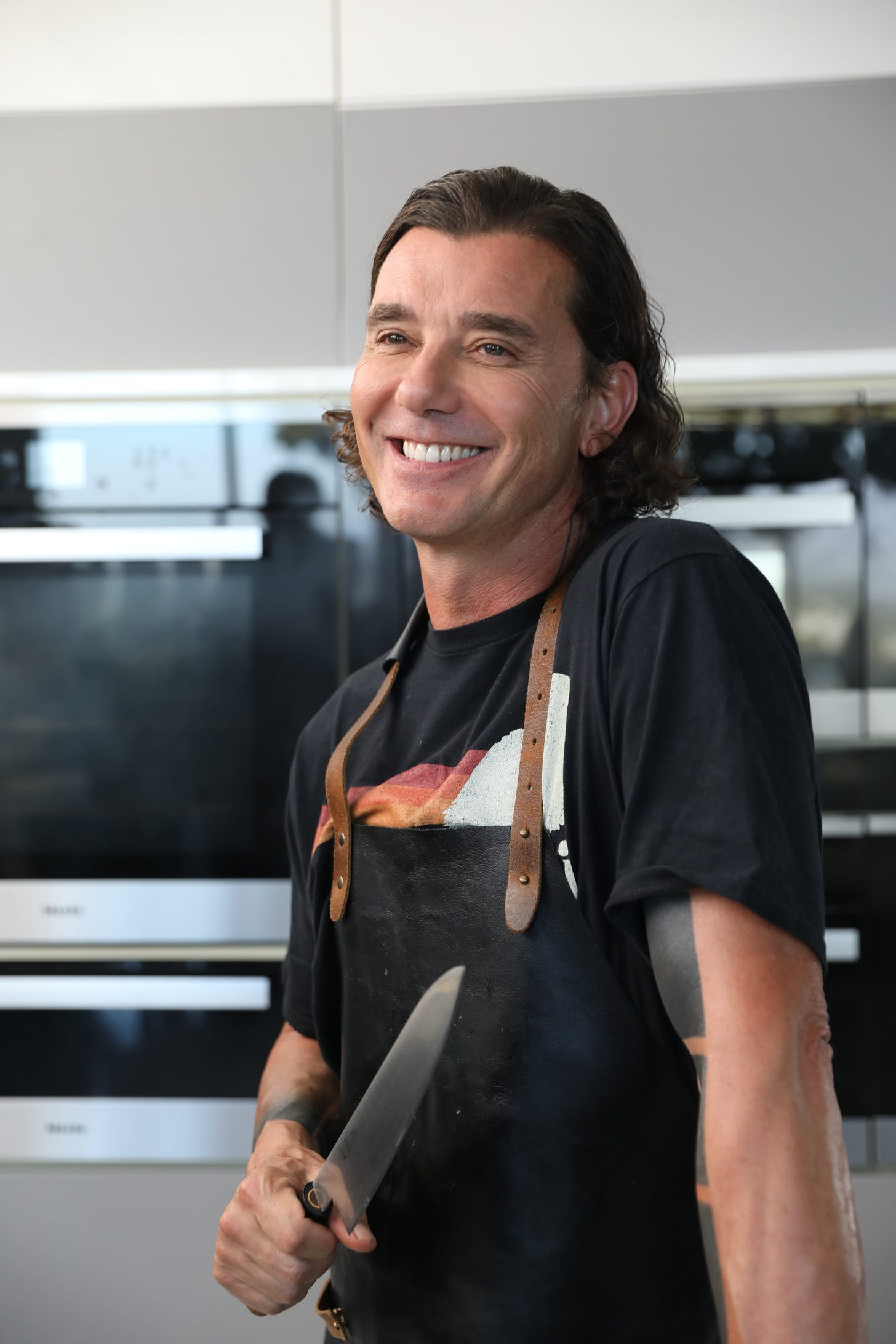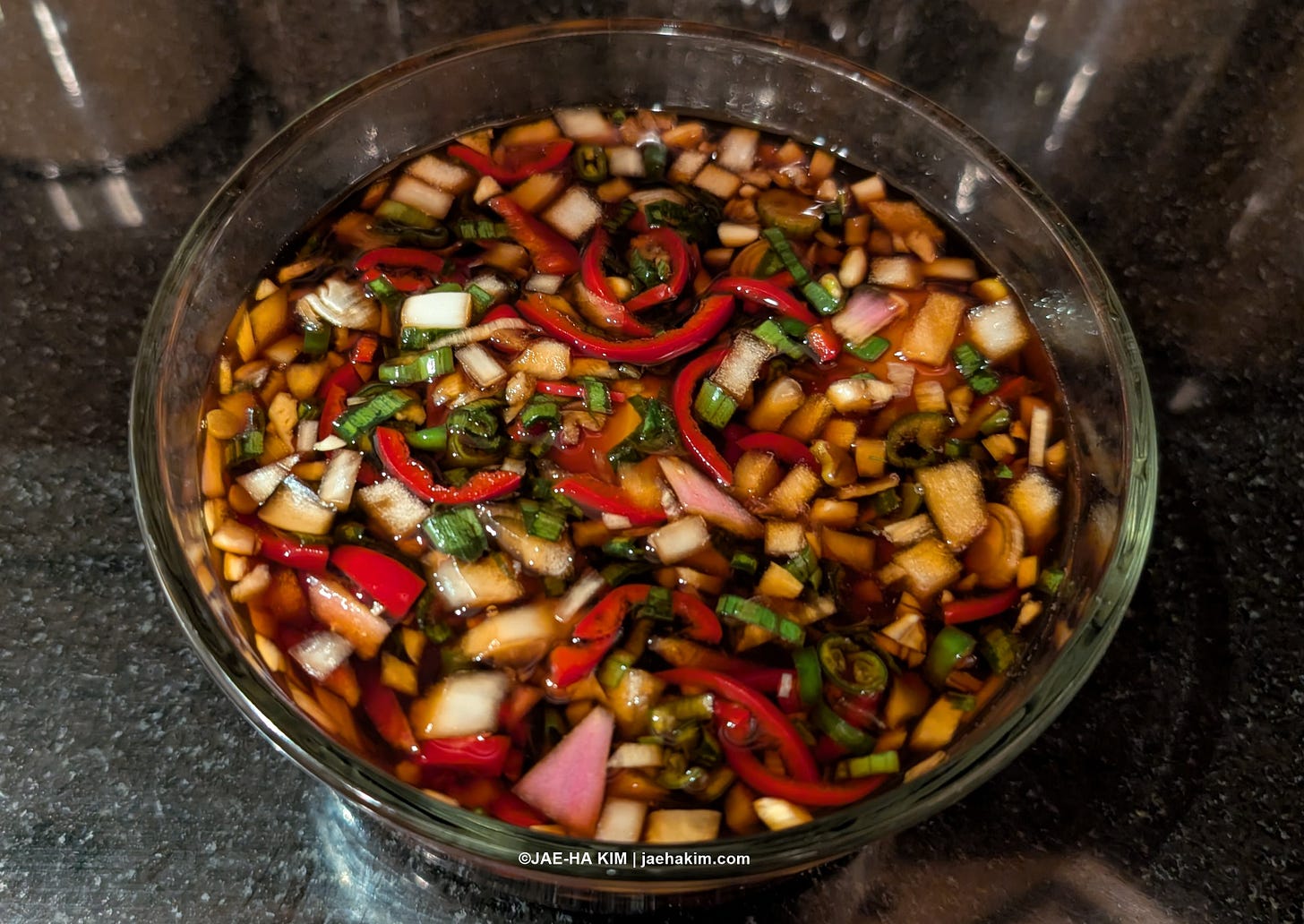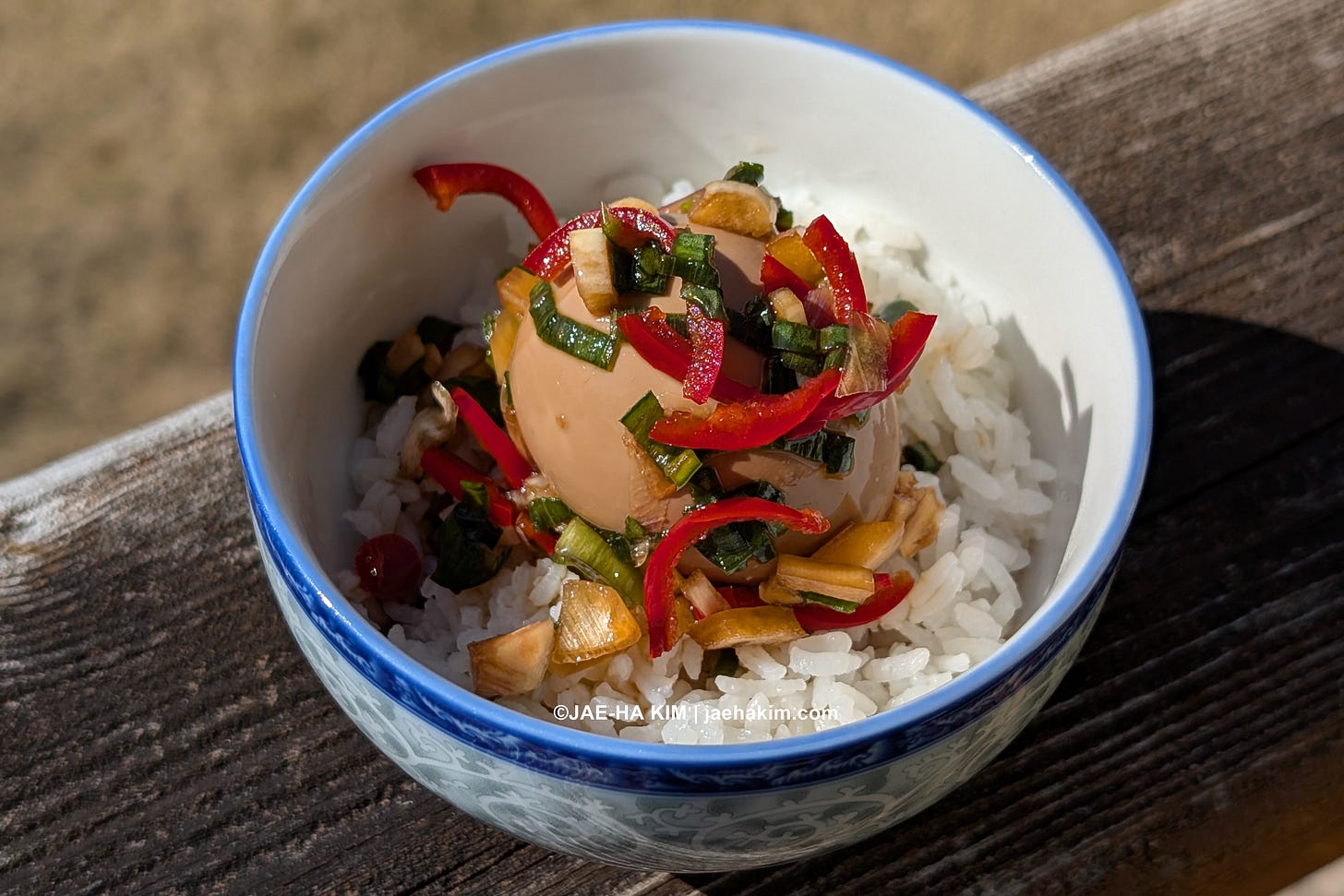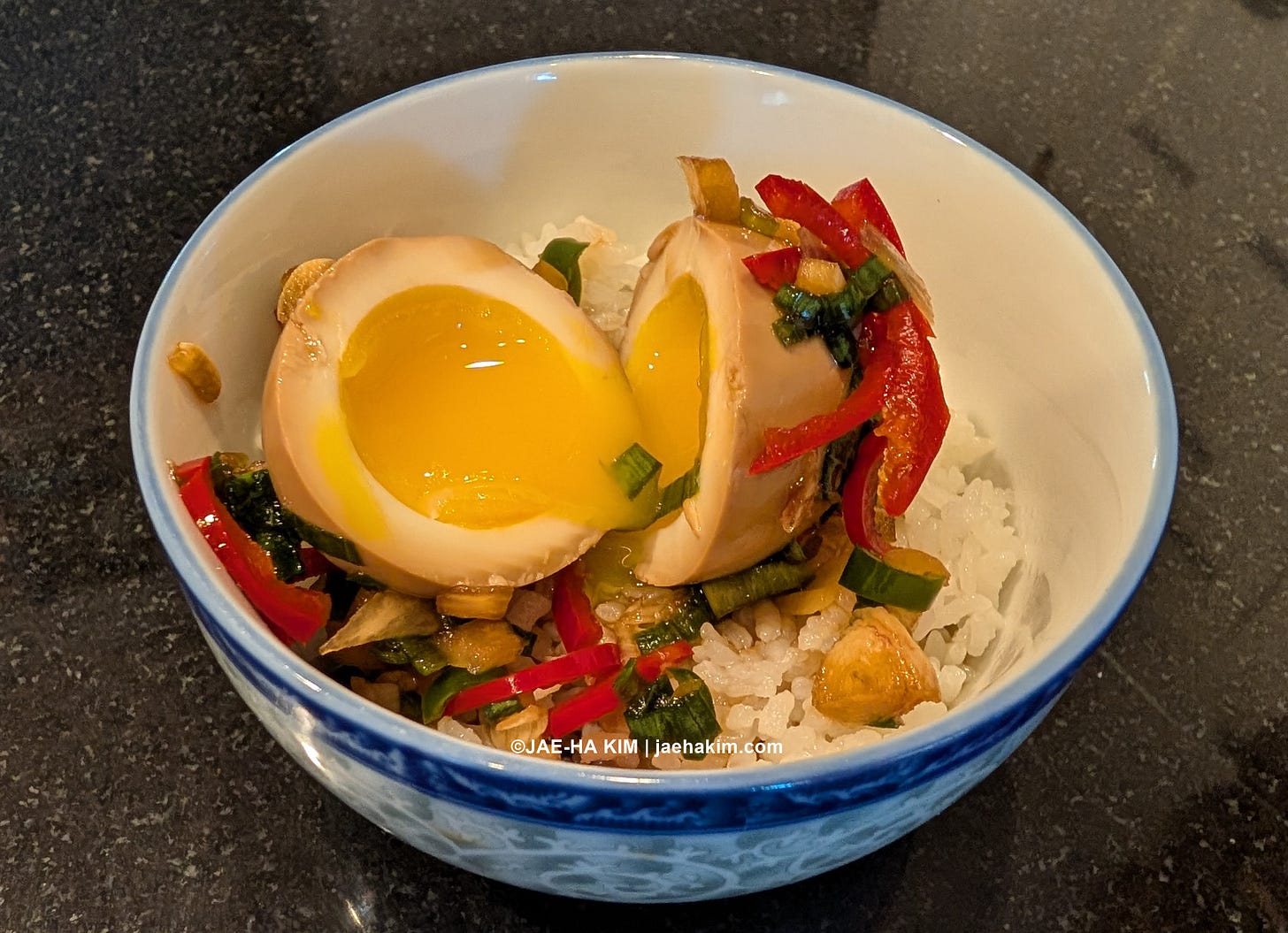A Conversation with Gavin Rossdale About Korean Food
In the late 1990s and early aughts, I interviewed Gavin Rossdale of the British grunge rock band Bush many times. But it wasn’t until our chat this year that I learned something new. He loves Korean cuisine.
Not as in, “Oh, I love Korean barbeque.” Rather, he enjoys Korean food so much that he cooks it at home for his family. And when he does hire a chef to help out for larger get-togethers, it’s always his preferred Korean chef.
“If I’m doing a dinner and I don’t want to cook, I get Chef John to come,” Rossdale told me. “He will always make Korean meals, but it’s not always barbecue. And my guests just love whatever he makes, which is always so elegant and delicious.”
Rossdale is best known as a lead singer, guitarist and songwriter, but he recently made his foray into reality TV as the host of his own VIZIO WatchFree+ cooking show, “Dinner With Gavin Rossdale,” where he cooks dinner for guests like Sir Tom Jones, Brooke Shields and Serena Williams.
For this interview, which has been lightly edited for clarity and length, the musician spoke to me from his Los Angeles home via Zoom.
So, you really love Korean food, don’t you?
I do. Korean is my favorite cuisine. I’m obsessed with it. I make bulgogi, obviously, and some simple stuff. And I actually make an incredible kimchi tofu stew with gochujang, sesame oil, plenty of garlic and chicken stock, and kimchi. I get this beautiful kimchi from a Korean market. You want the real stuff, not just from a [western] supermarket. Korean food feels very clean and gets straight to the point of nutrition, yet it’s really flavorful.
What is your favorite Korean dish?
I love all of it, not just the barbecue stuff, but I really love the soups. I make really nice [mayak eggs¹]. I’ve found that anything tastes better when you add a bit of soy sauce and sesame oil to it.
Soups and stews have always been such an important part of Korea’s culinary history. Before it became a wealthy nation, Korea was very poor. And Koreans had to make due with stretching out scraps of meat into meals to feed an extended family. And fermentation was so important because vegetables had to last all winter. I’m so excited that you love Korean food!
Oh, it’s my absolute favorite. Everyone [I know] knows that unless someone in my family is requesting a specific restaurant, I am always going to say, “Can we just do more Korean?”
Have you had a chance to visit South Korea?
Yes! When I was there, I went to the night markets. And when you go into the back of all these crazy markets with everything there — clothes, toys, food — you see everyone sitting around eating. You’ll see five people just eating kimchi. I thought, “This is the most wild and wonderful thing. People eat kimchi all night long!”
Kimchi is such an important part of Korean culture. Some Koreans like to have it with a beer. Or they might snack on myeolchi bokkeum/멸치볶음 (stir-fried dried anchovies) with a drink.
I love dried anchovies.
Okay, you do not eat dried anchovies.
I do. Why would I not?
My last question for you. I know that throughout your career, you’ve had journalists who loved your music and others who wrote you off. So if you were going to cook for a random journalist on your show, what would you make for them?
When I cooked for Serena, I learned to my peril that I managed to cook something with tomatoes and avocados, which are both things that she hates. But I made a really nice dish of tomatoes and she liked them. She didn’t eat all of them, though. [Laughs] So I would try to find out what the journalist likes and dislikes, if they have any allergies and…
OK, not just a random journalist. I’m talking about me!
[Laughs] Oh, if it was for you, it would be so great. That would be easy. I’d make you Korean food. I could do a Korean spread. My love of fish cakes runs deep, so I’d make that. I love pickles and would of course serve all the banchan. Maybe a nice spicy stew and some fish. Japchae maybe. We would eat well.
I rarely follow recipes step-by-step. I’ll sometimes use them for guidance, but then wing it from there, adding a little bit of this and a little bit of that to what tastes good to me. You can find a ton of recipes for mayak eggs on the internet. Elle over at Cookerru has easy-to-follow directions with precise measurements if you’d like to try that one.
Since I’m more of a son-mat (손맛)² type of cook — tasting as I go — my food doesn’t always taste the same twice. But this time, I kept track so I could share this delicious dish with you:
THE EGGS:
° Boil six eggs in 1 tablespoon of salt and 2 tablespoons of vinegar for 5½ to 6½ minutes. The colder the eggs, the longer you’ll need to boil them. Once they’re done cooking, put the eggs in an ice bath. Then peel the eggs. (The salt and vinegar should help with the peeling process, but I always have issues regardless.)
THE MARINADE:
° ½ cup soy sauce
° ¾ cup water
° 6 cloves minced garlic
° ½ diced onion
° 1 to 3 diced spicy peppers (I used 2 red and 1 green chili peppers, but this honestly wasn’t spicy enough for my family. I’ll add 4 the next time.)
° A splash or mirin (rice wine vinegar will work nicely as well)
° About 1 tablespoon of sesame oil
° 2 chopped green onions or chives
Completely cover the eggs and refrigerate for 24 hours. If you can’t wait that long, a couple hours will do. But it tastes better once the eggs have had a chance to marinate.
Note: A lot of recipes suggest adding sugar, honey or some other kind of sweetener to the marinade. My mother never added sweeteners, so I don’t either. But that’s a personal preference. I prefer this dish to be savory. But if you would like to try adding sugar, I’d recommend you take a bit of the marinade, add a teaspoon or so of sweetener and pour it over one egg. If you like it, you can add more to the rest of the marinade.
If you prefer hard-boiled eggs, you can cook them for 10 or 11 minutes and they should be fine. But I like them a bit runny, like below.
I hope you enjoy this delicious Korean dish. If you make it (or have eaten it somewhere), please let me know what you thought of it.
¹ In Hangul, 마약계란 (mayak eggs) translates to illegal drug eggs. They’re also known as rice thieves, because they’re so delicious and addictive (in a good way). Rossdale makes a simplified version on his tour bus, using eggs, wine vinegar, soy sauce and mirin. My version has a few more steps, but is still easy to make.
² Son mat (손맛) literally means “hand taste.” Or going by taste, rather than precise measurements.
© 2025 JAE-HA KIM | All Rights Reserved
° World’s Largest ‘Baby Exporter’ Admits to Adoption Fraud (New York Times)
In its destitute postwar decades, South Korea promoted overseas adoptions to find homes for orphaned, abandoned or disabled children abroad rather than build a welfare system for them at home. The government left it to the adoption agencies to find and ship children abroad for fees from adoptive families.
“Numerous legal and policy shortcomings emerged,” said Sun-young Park, the chairwoman of the commission. “These violations should never have occurred.”
° j-hope on How His Military Service Influenced His New Solo Music: ‘Experiences are Invaluable’ (Rolling Stone exclusive)
° KiiiKiii are K-Pop’s Latest Shining Stars (Rolling Stone exclusive)
° The Sacrificing of Suga (K-Culture with Jae-Ha Kim)
° “Cold” Addresses Abandonment & Revenge (K-Culture with Jae-Ha Kim)











